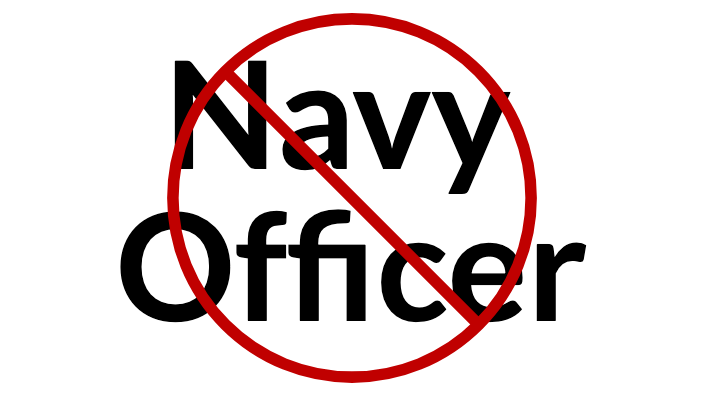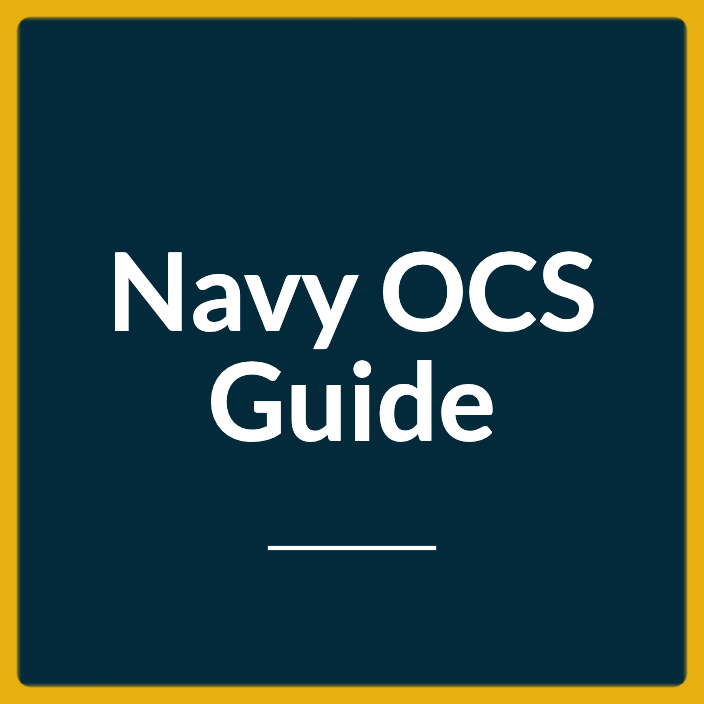If you’ve ever dreamed of serving your country as a Navy officer, you’re not alone. The Navy offers a wide range of exciting and rewarding career opportunities for those who are up to the challenge.
However, it’s important to know that not everyone is eligible to become a Navy officer. There are certain disqualifiers that can prevent you from pursuing this noble career path.
In this article, we’ll dive into the common disqualifiers for Navy officer candidates to help you determine if you meet the requirements.
Before we get into the specifics, it’s essential to understand that the Navy holds its officer candidates to high standards.
These standards are in place to ensure that the individuals who lead our Navy are physically, mentally, and morally fit for the job.
Now, let’s explore the common disqualifiers.
Common Disqualifiers for Navy Officer Candidates

Medical Disqualifications
One of the first hurdles to clear when applying to become a Navy officer is passing a medical examination. A physical exam with medical record review is a critical part of the process, and any medical condition may be a cause for disqualification.
This is typically conducted in a Military Entrance Processing Station or MEPS. All military branches have their own set of requirements, but the Navy has specific medical disqualifiers.
Here are some medical conditions that can disqualify you:
1. Vision Problems
Excellent vision is crucial for Navy officers, as they often need to make critical decisions in high-stress situations. If your vision is not correctable to 20/20, you may be disqualified.
Visual acuity must be correctable to 20/20 in both eyes, either with or without correction. This means that if you require glasses or contact lenses to achieve 20/20 vision, you can still qualify.
Color blindness is also an issue, as it can affect your ability to detect certain colors on military equipment.
2. Hearing Loss
Hearing is equally important, and significant hearing loss can be a disqualifier. However, the Navy considers waivers sometimes.
It’s important to note that the specific hearing standards may vary depending on the officer program you’re applying for.
3. Chronic Medical Conditions
Certain chronic conditions, such as asthma, diabetes, or epilepsy, may disqualify you. However, each case is evaluated individually, and waivers can be granted.
If you have a chronic medical condition, it’s crucial to provide comprehensive medical documentation and consult with a Navy medical professional during the application process.
4. Mental Health Issues
A history of mental health disorders can be a disqualifying factor. The Navy wants to ensure that its officers can handle the mental stresses of the job.
However, it’s important to note that not all mental health conditions are automatic disqualifiers. The Navy evaluates each case individually, taking into consideration the nature and severity of the condition, as well as treatment and stability.
Evidence of self-harm or suicidal thoughts in the past are typical examples of conditions that will be disqualifying.
Criminal Record Disqualifications
The Navy places a strong emphasis on integrity and trustworthiness. Therefore, a criminal record can be a significant disqualifier. This will cause problems with security clearance, which is necessary for many Navy officer jobs.
5. Felony Convictions
If you have been convicted of a felony, it’s likely that you will be disqualified from becoming a Navy officer. However, exceptions may be made in rare cases. The Navy considers the nature and circumstances of the felony, as well as the time that has elapsed since the conviction.
6. Drug Use
Illegal drug use, especially within the past year, is a disqualifying factor. The Navy takes a firm stance against drug abuse. It’s crucial to be honest about your drug history during the application process, as dishonesty can also be grounds for disqualification.
7. Financial Issues
Serious financial problems, such as outstanding debts or a history of bankruptcy, can also be disqualifiers. The Navy wants to ensure that its officers are financially responsible. It’s important to show a commitment to resolving any financial issues before applying.
Educational Disqualifications
To become a Navy officer, you must meet certain educational requirements.
8. Lack of a Bachelor’s Degree
To qualify for most officer positions, you typically need at least a bachelor’s degree. However, some specialized programs may have different requirements. It’s essential to review the specific educational requirements for the officer program you’re interested in and ensure that you meet them.
Age Disqualifications
9. Age Limits
The Navy has specific age limits for officer candidates. While these limits can vary depending on the program, it’s essential to be aware of them.
Most officer programs have age limits ranging from 19 to 35 years old, with some exceptions for certain specialties. Be sure to check the age requirements for your desired program.
Moral and Personal Disqualifications
10. Moral and Personal Conduct
Your overall behavior, integrity, and character are closely scrutinized. Any history of misconduct or unethical behavior can be a disqualifying factor.
The Navy seeks individuals who uphold the highest standards of conduct and ethics. It’s essential to maintain a positive and respectful record in all aspects of your life.
This will cause problems with security clearance, which is necessary for many Navy officer jobs.
Wrap-Up
Becoming a Navy officer is a noble and challenging path. While the Navy holds its candidates to high standards, meeting these standards is entirely achievable for many aspiring officers.
If you find that you have one or more of the disqualifying factors mentioned above, don’t be discouraged. The Navy may consider waivers or exceptions sometimes, and there are various officer programs with different requirements.
Remember, the Navy’s primary goal is to ensure that its officers are well-prepared to lead, make sound decisions, and uphold the values of honor, courage, and commitment.
If you’re determined to serve your country as a Navy officer, take the time to understand the specific requirements and work towards meeting them.
With dedication and effort, you may overcome some of these common disqualifiers and embark on a fulfilling career in the United States Navy.

